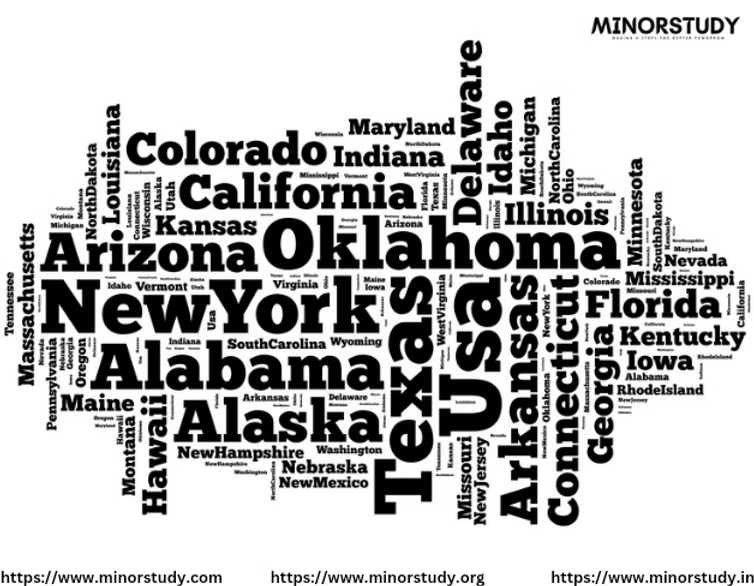Multiple Majors in the United States: An Overview
In the United States, pursuing multiple majors—commonly referred to as a double major—is a popular academic choice for undergraduate students who want to explore more than one field of study in-depth. Some ambitious students may even opt for triple majors, although this is less common due to the workload involved.
- Multiple Majors in the United States: An Overview
- What Is a Multiple Major?
- Types of Multiple Majors
- Requirements for a Double Major
- Advantages of a Multiple Major
- Challenges of a Multiple Major
- Popular Double Major Combinations
- How to Decide If a Double Major Is Right for You
- Steps to Pursue a Multiple Major
- Top Universities Encouraging Double Majors
- Conclusion
What Is a Multiple Major?
A multiple major involves completing the requirements for two (or more) distinct academic majors within a single bachelor’s degree program. For example:
A student might major in Economics and Political Science or Computer Science and Psychology.
Types of Multiple Majors
Double Major:
The most common type, where students earn a single degree with two declared majors (e.g., Bachelor of Arts in English and History).
Dual Degree:
Students pursue two separate degrees simultaneously, which usually requires more credits (e.g., Bachelor of Science in Engineering and Bachelor of Arts in Philosophy).
Triple Major:
Involves three distinct majors, though this requires careful planning and a heavy workload.
Requirements for a Double Major
Credit Hours:
Students must meet the credit requirements for both majors, although some overlap in general education or elective requirements may reduce the total load.
Core Courses:
Students need to complete the core curriculum for both majors.
Capstone or Senior Projects:
Some majors require independent projects, theses, or internships for each discipline.
Approval:
Students must typically get approval from academic advisors or department heads for a double major.
Timeline:
Double majors are usually completed within the typical 4-year timeframe, but this depends on the combination of majors and the university’s credit structure.
Advantages of a Multiple Major
Broader Knowledge Base:
Gain expertise in two fields, enhancing intellectual versatility.
Increased Career Opportunities:
Opens doors to diverse job markets by combining complementary or contrasting disciplines (e.g., Business and Data Science).
Stand Out to Employers:
Demonstrates ambition, time management, and interdisciplinary skills.
Interdisciplinary Skills:
Encourages creative problem-solving and innovative thinking by integrating different academic perspectives.
Preparation for Graduate Studies:
Provides a stronger foundation for interdisciplinary programs.
Challenges of a Multiple Major
Time Management:
Balancing the workload of two majors can be demanding.
Scheduling Conflicts:
Overlapping classes or limited availability can make it challenging to fulfill requirements.
Fewer Electives:
Double majors leave less room for exploratory courses outside the chosen fields.
Extended Time to Graduate:
If not carefully planned, completing two majors may require an extra semester or year.
Popular Double Major Combinations
STEM and Business:
Computer Science and Business Administration
Engineering and Economics
Social Sciences and Humanities:
Political Science and History
Psychology and Philosophy
STEM and Humanities:
Biology and English
Mathematics and Philosophy
Creative Fields and Business:
Graphic Design and Marketing
Film Studies and Business Management
How to Decide If a Double Major Is Right for You
Interest and Passion:
Are you genuinely interested in both fields, or are you adding a major for external reasons (e.g., job prospects)?
Career Goals:
Will the second major significantly enhance your career prospects or graduate school opportunities?
Time and Effort:
Do you have the discipline and time-management skills to handle the extra workload?
Advising and Planning:
Consult academic advisors early to create a feasible plan.
Steps to Pursue a Multiple Major
Choose Your Majors:
Identify two (or more) disciplines that align with your academic and career goals.
Check Requirements:
Research the course and credit requirements for each major.
Meet with Advisors:
Work with advisors to develop a course schedule that ensures timely completion.
Submit a Proposal:
Some universities require formal applications or proposals for double majors.
Plan Your Schedule:
Plan for overlapping general education requirements to reduce your overall credit load.
Top Universities Encouraging Double Majors
Many U.S. universities support and encourage double majors, including:
Harvard University
Stanford University
University of California, Berkeley
New York University
University of Pennsylvania
Conclusion
Pursuing multiple majors in the U.S. can be an excellent way to broaden your skill set, increase career opportunities, and prepare for graduate studies. However, it requires careful planning, dedication, and a clear understanding of your academic and professional goals.









As a Newbie, I am continuously searching online for articles that can aid me. Thank you
Hi there I am so excited I found your blog page, I really found you by mistake, while I was researching on Aol for something else, Anyhow I am here now and would just like to say cheers for a marvelous post and a all round exciting blog (I also love the theme/design), I don’t have time to read through it all at the moment but I have book-marked it and also added your RSS feeds, so when I have time I will be back to read much more, Please do keep up the great job.